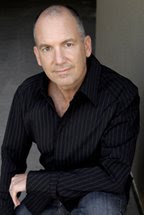Finally, after weeks of the new DVD release of Tom Ford's movie A Single Man arrived from Netflix, we finally had time to sit down and watch it last week.
We knew we wanted to see it when it was in theaters earlier this year, but I wasn't ready emotionally to watch someone going through a grieving process since my plate was pretty full dealing with the surgery and all the layers associated with it.
In a way then, feeling ready to take this movie on is a good sign. I felt strong enough, and I guess safe enough, to watch something that I knew from just the reviews would touch me at some level.
I'm confident given the press about the movie that I'm not being a "spoiler" in describing the basic story, which is essentially about a middle-aged gay man in the 60's who loses his long-time partner early in the film and we spend the rest of the film watching him deal (and not deal) with his deep loss. The film was adapted from the Christopher Isherwood novel by the same name.
Within ten minutes, I was bawling.
To be fair to the readers who haven't seen the movie, I'm going to try to resist the details, but instead I want to share what the movie meant to me in a global sense.
First, on an immediate level, the thought of ever losing Brad is so painful, it's beyond description. It's an ache in the chest that's both gripping and total, that it forces tears to my eyes that just run freely even without sobbing. Literally, like my eyes are spigots that have been turned on and are slowly leaking the pressure from my chest.
I have never seen love between two men expressed so beautifully on screen. The level of mourning he felt paralleled the intensity of the relationship. The lead character's grief has many layers, from the vivid details of intimate moments that symbolized his joy when they were together to the heaviness of getting through another day alone, revealed in his dreams of sinking under water, unable to breathe or escape.
Another theme I strongly related to was the era in which the movie was set. A time when no one recognized or validated gay relationships (or gay people for that matter). The loneliness he must have felt as his best friend in the world, a heterosexual woman, couldn't even fully understand that his love was better than any relationship she'd ever experienced, reminded me of the days from my childhood when I could talk to no one about being gay. I lived in a world, not far from the 60's, where homosexuals were considered mentally ill, deviants, and second class citizens incapable of love and trust and spirituality. I remember the isolation and the condemnation. It has always been in the back of my mind as I grew up and tried to overcome those messages as I reached out for real love and affection.
He is not allowed to grieve openly.
He does not have society's support which is virtually universal when one of a pair of lovers dies.
And as a middle aged man, I so strongly identified with his insecurity about his future.
We see him question the value of continuing. He is certain at first, that the best part of his life is over and that the happiness he's felt for 16 years could never happen again.
But despite the rawness of the emotion and the fears that it evoked, I did not find the movie depressing.
On the contrary, it was an experience that opened me up to gratitude.
We do live in a different era. I am not a little gay boy living in a fundamentalist (Tea Party) world of harsh judgement, anger and hatred.
At 41, as a middle aged gay man, burned out from incomplete relationships and self-doubts, I met someone who loved away my fears and defenses.
At almost 50, my faith in love is powerful and sustaining.
A Single Man has reminded me to be grateful and fully present. I don't want to miss a moment.
Monday, August 23, 2010
Subscribe to:
Comments (Atom)












